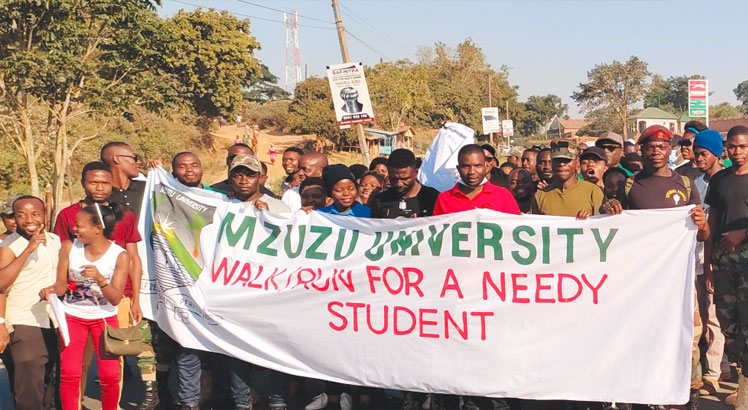Tearful stories of needy students
It never rains but it pours for needy students. The recent fees hike in public universities has put more students in dire straits.
For example, Malawi University of Business and Applied Sciences (Mubas) registrar for academics Yamikani Chilinde said 128 students reserved their places last academic year due to financial constraints. Kamuzu University of Health Sciences (Kuhes) senior assistant registrar Chiamiko Chinkwita Phiri said 20 undergraduate and 90 post-graduate students have reserved their places. Malawi University of Science and Technology (Must) communications manager James Mphande said there were 50 students last September that needed help with fees.
For those repeating a year, it is particularly bad as they cannot access loans from the Higher Education Students Loans and Grants Board (Heslgb), Weekend Nation has learnt.
On the other hand, those barred from sitting for end- of-year examinations, for example, at Mzuzu University (Mzuni) because of tuition fees balances, will have to repeat that year through entry in the second semester. That means students who had secured a loan from Heslgb to cover the subsequent academic year, automatically forfeit the funds.
Tuition fees for all public universities rose last year. Kuhes hiked it from K400 000 to K1 million. Must revised tuition fees from K450 000 to K650 000 as did Mzuni, Mubas, University of Malawi (Unima) while Lilongwe University of Agriculture and Natural Resourcese (Luanar) increased fees from K350 000 to K600 000.
According to Heslgb executive director Prince Phwetekere, the board does not consider applicants that are repeating a year in order to encourage hard work among students.
He said this applies across the board, even for those that failed to proceed to the next year of study due to other constraints.
“The policy is that we do not provide loans to students repeating an academic year but should they pass to the next year of study, then they are free to apply,” said Phwetekere.
But brining out the best performance in herself has not been easy for 26-year-old Tupochere Hamida Phiri, a mining engineering student at Mubas, a programme she says is new and crude.

fundraiser in aid of fellow needy students
Phiri, who is not a beneficiary of the government loan scheme, is an off-campus student from Ndirande Township. She lost both parents and lives with her 86-year-old grandmother. They both depend on her uncle for upkeep.
The uncle runs a small grocery shop but he cannot afford to pay for his niece’s rising tuition fees. Phiri is grateful to her classmates who teamed up the previous year to raise part of her tuition fees.
She said: “I walk back home to sell vegetables to earn money for some of our needs. Sometimes, I give up evening classes so I can walk home before it gets dark. With no electricity and no laptop, it is hard to study and do assignments. I have to borrow friends’ laptops and, eventually, lose marks when I submit assignments late. Sometimes I regret choosing engineering.”
Phiri said such hardship affects her academic performance, which eventually led her to lose her previous sponsor, the Islamic Zakaat Fund, after she repeated her second year. But she is thankful to yet another local Muslim relief organisation which has come to her rescue.
The story of struggle is the same for 19-year- old Getrude Nyirongo from Rumphi. She is a first-year land surveying student at Mzuni and was among students that did not sit for their end-of-year examinations due to fees balances. This means Nyirongo will have to repeat in the second semester. She said her first semester fees balance has been compounded by the recent fees hike and feared that her parents will not afford it.
Said Nyirongo: “My parents have to provide for my brother who is in his second year at Unima, my sister in secondary school and the youngest sister in primary. Staying off-campus, I have to handle pressure from the landlord and also think about food.”
Narrating her story as she filled forms for withdrawal until next academic year, Nyirongo said it was painful to see her friends progress to the next level.
“I applied for a government loan to cater for my second year and was considered. But now that means I have lost the funds since I will be repeating next year,” she said.
But Phwetekere admitted that there is a fresh high demand for support from students to meet the cost of tertiary education in both public and private universities. He said the actual number will be established once they open loan applications this year, but he advised students to start thinking outside the box.
He said: “Considering that government cannot provide for all the needs, besides what it is doing, it is advisable that during their free time, the students can be doing part-time jobs that would help complement the government efforts towards their education






helloI like your writing very so much proportion we keep up a correspondence extra approximately your post on AOL I need an expert in this space to unravel my problem May be that is you Taking a look forward to see you